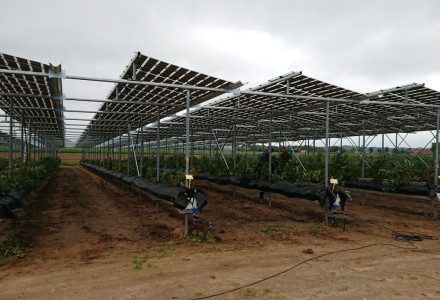PM-KUSUM Program: Solar Energy and Agrivoltaics Paving the Way for Sustainable Farming in India
The PM-KUSUM (Pradhan Mantri Kisan Urja Suraksha evam Utthan Mahabhiyan) program is a key initiative by the Indian government aimed at promoting the use of solar energy in the agricultural sector. It includes several components designed to help farmers reduce their reliance on traditional energy sources like diesel and electricity by transitioning to solar-powered alternatives.
The program is divided into three main components:
- Component A: Involves the installation of decentralized solar plants on barren land. Farmers can sell surplus solar power to the grid, providing an additional income stream.
- Component B: Focuses on installing standalone solar-powered agricultural pumps, especially in regions where electricity is unreliable or non-existent. This helps reduce diesel use and lowers operational costs for farmers.
- Component C: Supports the solarization of grid-connected pumps, allowing farmers to meet their irrigation needs while reducing electricity costs. Excess solar power can also be sold back to the gridPM KUSUMSolarQuarterZunRoof.
The PM-KUSUM scheme provides up to 60% subsidies from the central government, along with additional state support and loans, making solar energy more accessible to small and marginal farmers ZunRoof.
Agrivoltaics is a crucial aspect of India's sustainable energy transition under this program. It allows farmers to simultaneously grow crops while generating solar power on the same land, offering a sustainable solution to land-use challenges and boosting agricultural productivity Down To EarthIISD.
For more detailed information, you can explore the official PM-KUSUM portal PM KUSUM.
























